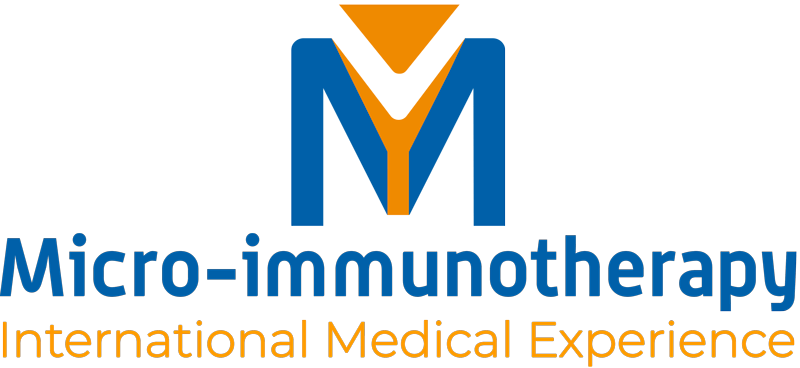Have you been exposed to a lot of sunlight lately? Are your defences lowered due to stress? Are you tired of the annoying, recurrent herpes blisters either in the oral or genital area?
Frequent herpes outbreaks often indicate that the immune system is out of balance and unable to fight the pathogen efficiently. Micro-immunotherapy is an efficient and gentle treatment option to support the immune system in case of herpes simplex virus infections. It aims to restore the balance and efficacy of the immune response in a natural and sustainable way, namely through low doses of immune messenger substances. Thus, it addresses the underlying cause of herpes outbreaks.
What is herpes simplex?
Herpes simplex virus (HSV) type I and II are double-stranded DNA viruses surrounded by an envelope that replicate in the cell nucleus. HSV-I is generally responsible for oral-labial lesions while HSV-II causes genital infections 1.
These viruses enter the body through the mucous membranes and replicate inside the epithelial cells, causing inflammation and tissue destruction. This first stage of the infection is characterised by the onset of herpes vesicles.

The virus then migrates to the ganglion sensory neurons where it will remain dormant until the next reactivation, which can be triggered due to different factors (stress, malnutrition, other infections, general immune deficiency, among others).
When our body detects the presence of HSV, it triggers a series of immune mechanisms that will play a key role in the evolution of the infection. More precisely:
- Cell-specific receptors, such as Toll-like receptors (TLRs) detect the virus.
- TLRS will induce an intracellular signalling cascade and promote the secretion of cytokines such as alpha, beta and gamma interferons, essential for the activation of T cells and Natural Killer cells (NK) 2 that are in charge of clearing the virus.
However, it has been found that these viruses possess several mechanisms that help them evade the immune response. As a result, they can reduce the expression of HLA class I molecules, thereby weakening the ability of cytotoxic T lymphocytes to identify and eliminate infected cells.
Micro-immunotherapy & HSV infections
In herpes simplex virus infections, micro-immunotherapy works its effect on multiple levels aiming to address the underlying cause of cold sores or genital herpes. Its objective is not only to dampen viral replication but also to strengthen immunity, restoring its efficacy, in order to prevent new outbreaks. Patients with recurrent herpes outbreaks who have been treated with micro-immunotherapy have reported about longer intervals between remissions or no remissions at all. In cases where herpes blisters do reappear, the course is milder and the affected area heals rapidly 3.
Objectives of micro-immunotherapy in herpes simplex infections

1. Prevent the virus from replicating and infecting other cells.

2. Favour T cell response through the secretion of type-I IFNs, a cytokine essential in the antiviral response.

3. Rebalance the immune response by controlling recurring infections to prevent associated diseases 4.
- Herpes simplex virus. Fact Sheets. 2020.
- Chew T, Taylor KE, Mossman KL. Innate and adaptive immune responses to herpes simplex virus. Viruses. 2009;1(3):979-1002
- Jenaer M, Henry MF, Garcia A, Marichal B. Evaluation of 2LHERP in preventing recurrences of genital herpes. Institut International 3IDI. Br Homeopath J. 2000;89(4):174-7
- Pötsch, E. El tratamiento del herpes con la fórmula de microinmunoterapia. Revista Nuevo Contact, nº20. 2015. Asociación Española de Microinmunoterapia.
Improve your health with micro-immunotherapy!

Discover more about micro-immunotherapy for the treatment of herpes simplex virus infections by contacting us at micro-immunotherapy@micro-immunotherapy.com
If you are a doctor, a member of a specialist medical group or a therapist take this opportunity to request free and non-binding access to our professional area and enjoy additional content.
